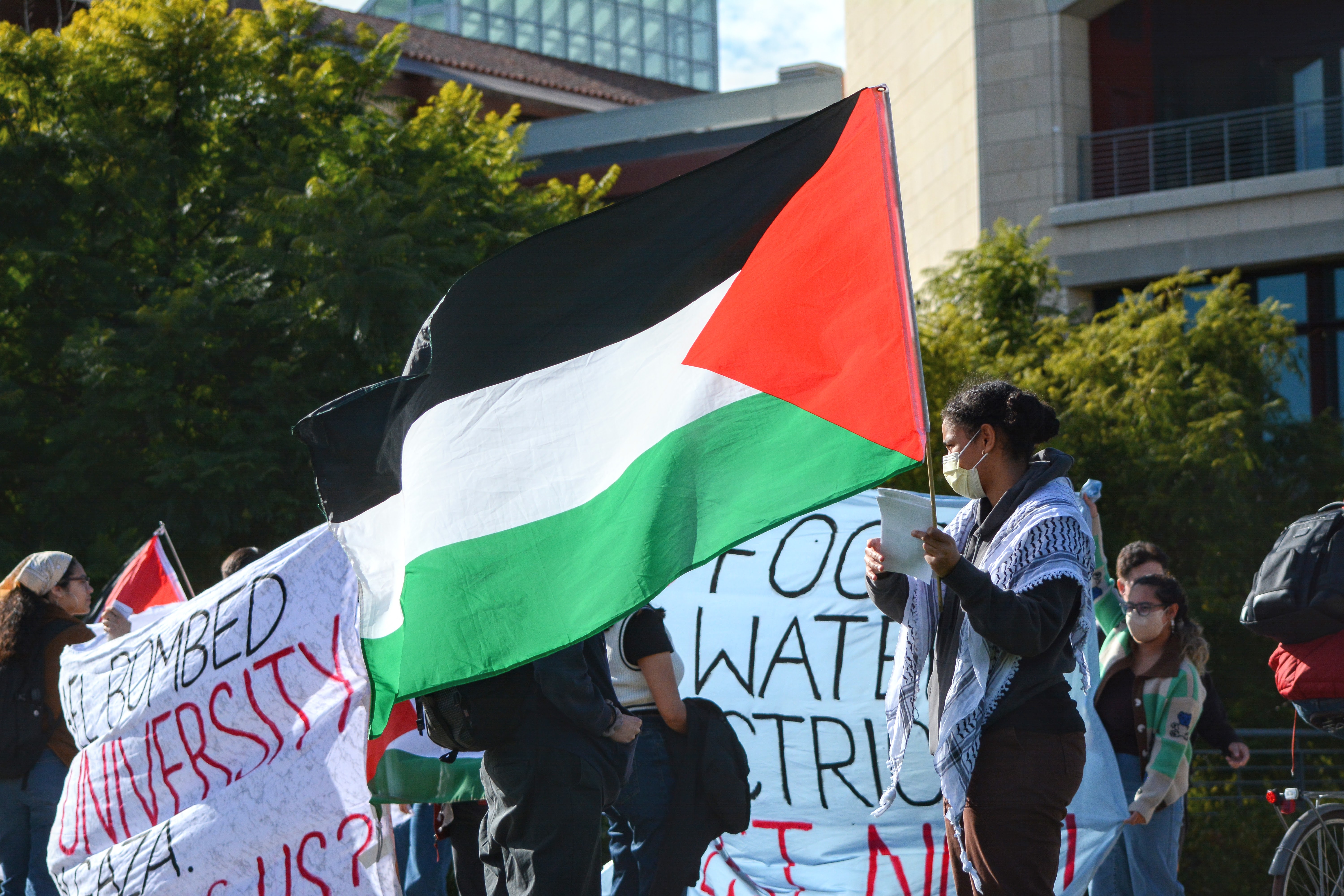Content warning: This article includes references to suicide.
New club Stanford Students Against Genocide (SSAG) held its first event in the Otero lounge on Thursday evening where it facilitated discourse on recent events in the Israel-Gaza war. SSAG shared the club goals and future plans for cross-cultural dialogue.
Eliana Contreras ’26, Cheosang Scholer ’26 and Khaoula Aissaoui ’24, founded the club in an intensive at the beginning of winter quarter called CSRE 127B: Leadership, Organizing and Action. It is unaffiliated with other pro-Palestine groups on campus.
“I have faith and I have hope that tomorrow will be better, let us all weep for Palestinian liberation and human justice that will change their lives and ours,” Aissaoui said in an introduction.
Contreras said they were personally motivated to create the club from parallels they see between growing up as a child of Mexican immigrants from a low-income community and the experiences other marginalized people face. They also said that they were troubled by the lack of accessible information about marginalized communities in spaces at Stanford.
“We don’t have individuals from communities who are able to engage in discussions with this academic jargon because … a lot of the scholarship [around] cross-cultural understanding of what liberation and transnationalism and global liberation tends to be very inaccessible,” Contreras said.
Some attendees debated which issues most materially shaped the Israel-Gaza war. For instance, some focused on limited reporting on the U.S. military industrial complex. Another said religion played an outsize role in media and public discourse, despite the fact that they believed money and power were central to the war.
One of SSAG’s main asks is for members to boycott Israeli dates, which comprise a significant share of Israel’s export economy.
SSAG hopes to take an intersectional and interdisciplinary approach to connect Palestinian liberation to broader issues including abolition, mass incarceration and environmental justice.
“Palestinian liberation should entail the liberation for all marginalized people,” Contreras said.
The organizers brought up recent news, including the self-immolation of active duty airman Aaron Bushnell in front of the Israeli embassy in D.C. on Sunday, Israeli airstrikes in Rafah that killed 100 Palestinians on Thursday and the U.S.’s third veto of a ceasefire resolution in the United Nations Security Council.
International conflicts in Myanmar, the Democratic Republic of Congo and Sudan showed the global unity and experience of marginalized communities, organizers said. “Bringing it a little closer to home,” Scholer said that Stanford was “actively denying students the right to protest” referring to the 18 Stanford students detained after protesting during Family Weekend.
The Daily has reached out to the University for comment.
The club plans to create a website to broaden their message and will provide translations to connect with the East Palo Alto community. Cross-cultural discussions such as teach-ins and movie screenings with Palestinian film directors, as well as town halls with professors and the general student body, are also in the works, according to Contreras.
